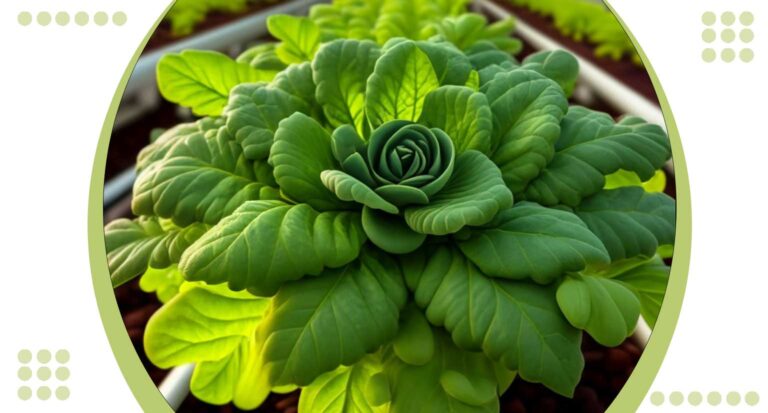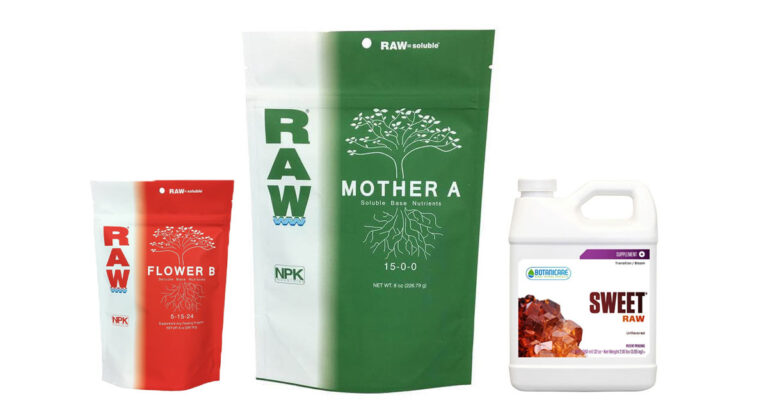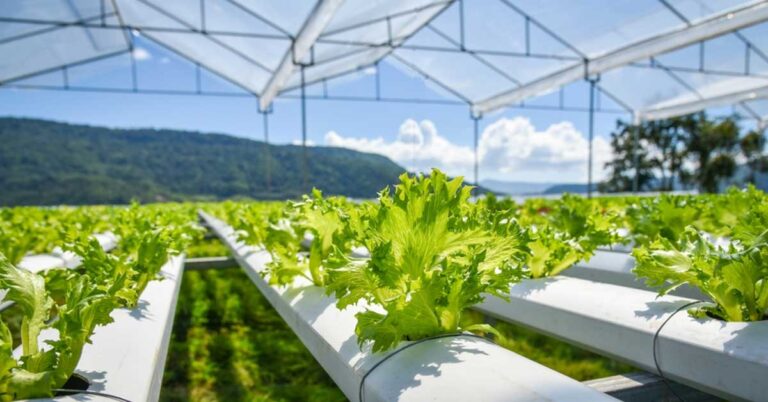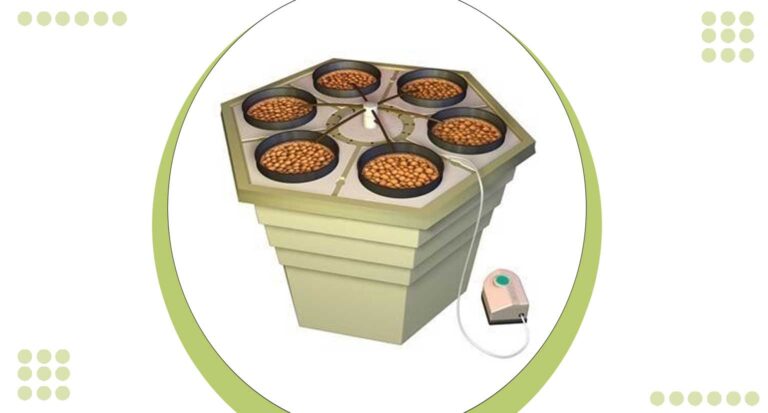Hydroponic Fertilizer for Leca
Hydroponic fertilizer for LECA (Lightweight Expanded Clay Aggregate) is a nutrient-dense solution specifically formulated to optimize the growth of plants in hydroponic systems.
This specially designed fertilizer provides essential macro and micronutrients that plants typically derive from soil, but are absent in a LECA setup.
With balanced proportions of nitrogen, phosphorus, potassium, and an array of other vital elements, hydroponic fertilizer ensures that LECA-grown plants thrive, promoting robust growth, lush foliage, and vibrant blooms.
What is LECA and why use hydroponic fertilizer for it
LECA, an acronym for Lightweight Expanded Clay Aggregate, is a type of hydroponic growing medium, essentially small balls of clay that have been heated to a high temperature, causing them to expand.
LECA’s porous nature makes it ideal for hydroponics, as it can both retain water and allow air to circulate around plant roots, promoting healthier, more vigorous growth.
While LECA provides an excellent environment for root development, it does not supply plants with the nutrients they need to grow – this is where hydroponic fertilizer steps in.
In traditional soil-based agriculture, plants extract essential nutrients from the soil. However, in a LECA setup, the growing medium is inert, meaning it contains no nutrients.
To ensure that plants grown in LECA receive the full spectrum of necessary nutrients – such as nitrogen, phosphorus, and potassium – a hydroponic fertilizer is used.
This specialized solution mimics the nutrient profile that a plant would usually derive from the soil, thereby enhancing the health, growth, and productivity of LECA-grown plants.
Benefits of using hydroponic fertilizer for leca
Utilizing hydroponic fertilizer for LECA offers a plethora of advantages. Firstly, it guarantees the delivery of a balanced, consistent nutrient supply catered to the plant’s needs, enhancing growth rates and overall plant health.
Secondly, the use of hydroponic fertilizer reduces the risk of soil-borne diseases or pests since the LECA environment is sterile.
Thirdly, this method allows for precise control over nutrient levels, enabling the grower to adjust the proportions depending on the specific requirements of the plant species.
Lastly, hydroponic fertilizer promotes environmentally sustainable practices, as it requires less water and produces fewer greenhouse gases compared to traditional soil-based farming.
How to choose the right hydroponic fertilizer for leca
Choosing the right hydroponic fertilizer for LECA largely depends on the specific needs of your plants, and a few key factors should be taken into consideration.
Firstly, look for a fertilizer that provides a complete nutrient profile, including macronutrients like nitrogen, phosphorus, and potassium, as well as essential micronutrients such as iron, zinc, and copper. Secondly, assess the pH compatibility.
Fertilizers should be pH balanced to ensure nutrient availability, as different nutrients are absorbed at various pH levels.
If the pH is too high or too low, certain nutrients may become unavailable to the plant. Thirdly, consider the concentration of the fertilizer.
It should be well balanced as too high concentration can burn the plants while too low may not provide sufficient nutrients.
Lastly, research and reviews can be a useful guide. Reach out to other hydroponic growers or consult online reviews to learn from others’ experiences.
Always remember, what works best will depend on your specific plants, their stage of growth, and the conditions in which they’re grown.
The best brands of hydroponic fertilizers for leca
When it comes to selecting the best brands of hydroponic fertilizers for LECA, a few names often emerge as top contenders.
- General Hydroponics is renowned for its comprehensive nutrient solutions tailored for hydroponic systems. Their “Flora Series” is particularly popular, providing a complete balance of primary, secondary, and micronutrients for enhanced plant health and growth.
- Advanced Nutrients offers a range of hydroponic fertilizers that are pH perfect, ensuring optimal nutrient absorption. The “Bloom, Micro & Grow” series is widely praised for its efficacy in promoting robust plant growth and high yields.
- FoxFarm is another reputable brand, known for its high-quality fertilizers. Their “Grow Big Hydro” liquid concentrate is specifically formulated for use in hydroponic systems, including LECA, and promises lush, vegetative growth.
- Botanicare‘s “CNS17 Hydroponic Formula” is a high yielding, cost-effective solution that provides all essential nutrients needed for rapid growth and flowering in hydroponic systems.
- MasterBlend is famous for its 4-18-38 Tomato & Vegetable Fertilizer, a preferred choice for many LECA growers due to its balance of nutrients and effectiveness in promoting strong, healthy plants.
Tips on proper application of hydroponic fertilizer for leca
Applying hydroponic fertilizer to LECA requires careful attention to ensure that your plants receive the optimal amount of nutrients. Here are some key tips to guide you:
Dilution
Always follow the manufacturer’s instructions when diluting the hydroponic fertilizer. Too high a concentration can overwhelm and burn the plants, while too diluted a solution may not provide sufficient nutrients.
Frequency
The frequency of fertilization will depend on the plant species and the stage of its lifecycle. Some plants may need weekly feeding, while others can thrive with less frequent nutrient supplementation.
pH Balance
Monitor the pH level of your nutrient solution regularly. The optimal pH level for most plants ranges between 5.5 and 6.5. A pH imbalance can hinder the plant’s ability to absorb nutrients.
Flushing
Periodically flush your LECA with plain, pH balanced water. This helps to prevent the buildup of excess salts and nutrients which can harm your plants.
Monitoring Plant Health
Keep a close eye on your plants for any signs of nutrient deficiency or excess. Yellowing leaves, stunted growth, or weak stems may indicate a nutrient imbalance.
Common mistakes to avoid when using hydroponic fertilizer for leca
Despite the numerous benefits of using hydroponic fertilizer for LECA, certain pitfalls must be avoided to ensure optimal plant health and growth.
Over or Under Fertilizing
Applying too much fertilizer can lead to nutrient toxicity, burning the roots and damaging the plant. Conversely, inadequate fertilization can result in nutrient deficiencies, stunting growth and reducing overall plant health.
Incorrect pH Levels
As already highlighted, maintaining the correct pH is crucial for nutrient absorption. Using a solution with the wrong pH can lock out certain nutrients, causing deficiencies even when the nutrients are present in the solution.
Neglecting to Flush LECA
Failing to periodically flush the LECA can lead to an accumulation of salts and nutrient residues which can prove harmful to your plants.
Not Tailoring Fertilizer to Plant Needs
Different plants have different nutritional requirements. Using a one-size-fits-all approach without adjusting to the specific needs of each plant type may not yield the desired results.
Ignoring Signs of Plant Stress
Discoloration, wilting, or abnormal growth patterns may signal nutrient imbalance. It’s important to keep a keen eye on your plants and respond swiftly to any signs of stress.
Conclusion
In conclusion, choosing the right fertilizer for LECA is a critical aspect of hydroponic gardening.
It’s essential to consider factors such as the nutrient profile, pH compatibility, and concentration of the fertilizer, as well as the specific needs of your plants.
Brands like General Hydroponics, Advanced Nutrients, FoxFarm, Botanicare, and MasterBlend offer a variety of high-quality hydroponic fertilizers that can cater to your plants’ needs.
Proper application, including correct dilution, regular pH monitoring, and periodic flushing, can ensure optimal nutrient absorption and plant health.
Avoid common mistakes such as over or under-fertilizing, ignoring signs of plant stress, and neglecting to tailor the fertilizer to each plant’s needs.
With the right approach, you can boost your plants’ productivity and cultivate a thriving hydroponic garden in LECA.







